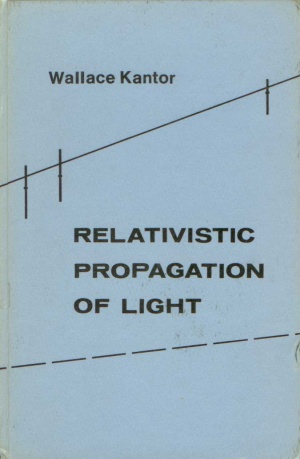Difference between revisions of "Relativistic Propagation of Light"
(Imported from text file) |
(Imported from text file) |
||
| Line 13: | Line 13: | ||
==Links to Purchase Book== | ==Links to Purchase Book== | ||
| − | * [[http://www.amazon.com/Relativistic-propagation-of-light/dp/0872910849/ref=sr_1_1?ie=UTF8&s=books&qid=1215998256&sr=1-1 Relativistic Propagation of Light]][[Category:Book]] | + | * [[http://www.amazon.com/Relativistic-propagation-of-light/dp/0872910849/ref=sr_1_1?ie=UTF8&s=books&qid=1215998256&sr=1-1 Relativistic Propagation of Light]][[Category:Book|relativistic propagation light]] |
| − | [[Category:Relativity]] | + | [[Category:Relativity|relativistic propagation light]] |
Latest revision as of 06:46, 2 January 2017
 | |
| Author | Wallace Kantor |
|---|---|
| Published | 1976 |
| Publisher | Coronado Press |
| Pages | 153 |
| ISBN | 0872910849 |
Wallace Kantor critically examines "the immediately relevant experimental evidence in the kinematics of the special theory of relativity and the old lumeriferous ether theory. The result is surprising: there is no kinematic experimental evidence for either of these theories. There is, instead, considerable unrecognized experimental evidence, both qualitative and quantitative, that contradicts these theories. There is experimental evidence showing that the speed of light does actually depend on the motion of its source at the time of emission. There is experimental evidence that the speed of light in certain physical situations does exceed the vacuum speed of light emitted from a stationary source. There is the only valid first-order experimentall evidence that the speed of light skew-convected by a flowing fluid is found to conform to the classical (etherless) addition of speeds, and not the Einstein "addition" of speeds; the ether theory Fresnel convection coefficient is also thereby experimentally contradicted." - From the Preface Though out of print, Kantor's classic remains a compelling summary of the experiments commonly used to defend the special theory of relativity. His arguments and analysis stand firmly rooted on the what actually happens in the lab.